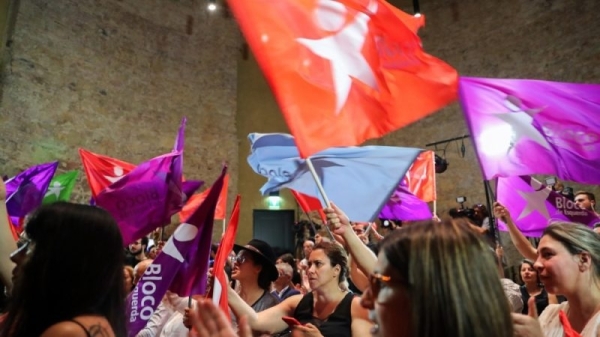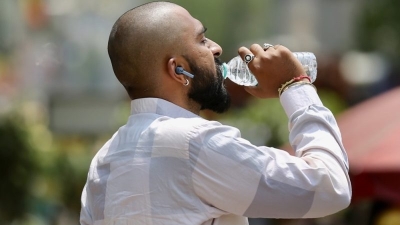European Left party vows to slash EU fiscal rules ahead of elections

The European Left party (EL) wants to “abolish” the EU’s current fiscal rules to facilitate greater social and environmental spending, according to a draft electoral manifesto seen by Euractiv.
The draft calls on the EU to “replace” the Stability and Growth Pact (SGP) — which regulates member states’ deficits and debt levels — “with a new pact focusing on social and environmental restructuring, allowing for expansionary and counter-cyclical policies”.
The EL’s call for the EU’s current fiscal rules to be scrapped comes just days after the European Commission, Parliament and Council managed to wrap up some thorny negotiations on SGP reforms hinging on how much flexibility countries that exceed targets should get to restore their public finances.
Though the reformed rules are in some ways more fiscally lenient than the original, they retain the SGP’s deficit and debt thresholds of 3% and 60% of annual GDP respectively – attracting criticism by some economic analysts for hampering the bloc’s ability to make critical investments at a time of growing economic malaise across the continent.
Speaking to Euractiv on Monday (February 19), Walter Baier, the president of the EL, chastised the plan’s “one-side focus of economic governance on restrictive fiscal targets”.
Experts against tight fiscal rules, too
Independent policy experts contacted by Euractiv were broadly supportive of EL’s call to abolish the SGP.
“Having numerical safeguards, where you have everyone having to comply with the same rules, doesn’t really make sense because each country has very specific conditions,” said Philipp Lausberg, an analyst at the European Policy Centre (EPC).
Rebecca Christie, a senior fellow at Bruegel, agreed that abolishing the rules “makes a lot of sense”.
“We need something that fixates less on numbers and more on economic growth and the benefits to citizens,” she said. “That’s a reasonable thing to want to do.”
However, Lausberg also warned that many of the proposed measures are unlikely to prove “politically feasible”, given the historic persistence of the notion of fiscal frugality.
Baier pointed out that the EL party, although in favour of “sound public finances”, has “other priorities” than measuring member states’ fiscal deficit and debt stocks.
“[These include] the poverty trap in which millions of Europeans are caught, the climate crisis [and] the desolate state of the public services in many countries,” he said.
To tackle these issues, the EL manifesto, the final version of which will be approved at the party’s electoral congress in Ljubljana on Saturday (24 February), proposes transforming the Recovery and Resilience Facility (RRF) into a permanent EU mechanism, and also sets out measures to fight the cost of living and climate crises.
Among the latter, it calls for enshrining the right to affordable housing in EU treaties, introducing an EU directive obliging countries to enforce a rent cap, and financing new housing projects by the European Investment Bank at a 0% interest rate.
“Many European citizens are struggling with a cost-of-living crisis, while in the EU billions of euros are spent for an unprecedented military build-up,” the draft reads.
“We are against the further increase in military spending, and we demand a fair taxation of wealth and financial profits,” Baier added.
The manifesto also alludes to the fact that right-wing populist parties could conceivably influence the EU’s next legislative agenda, warning against the risks posed by the more extreme components.
“The extreme nationalist, and neo-fascist right, which already governs in some countries and is knocking on the doors of power in others, must and can be stopped,” it writes.
Read more with Euractiv




